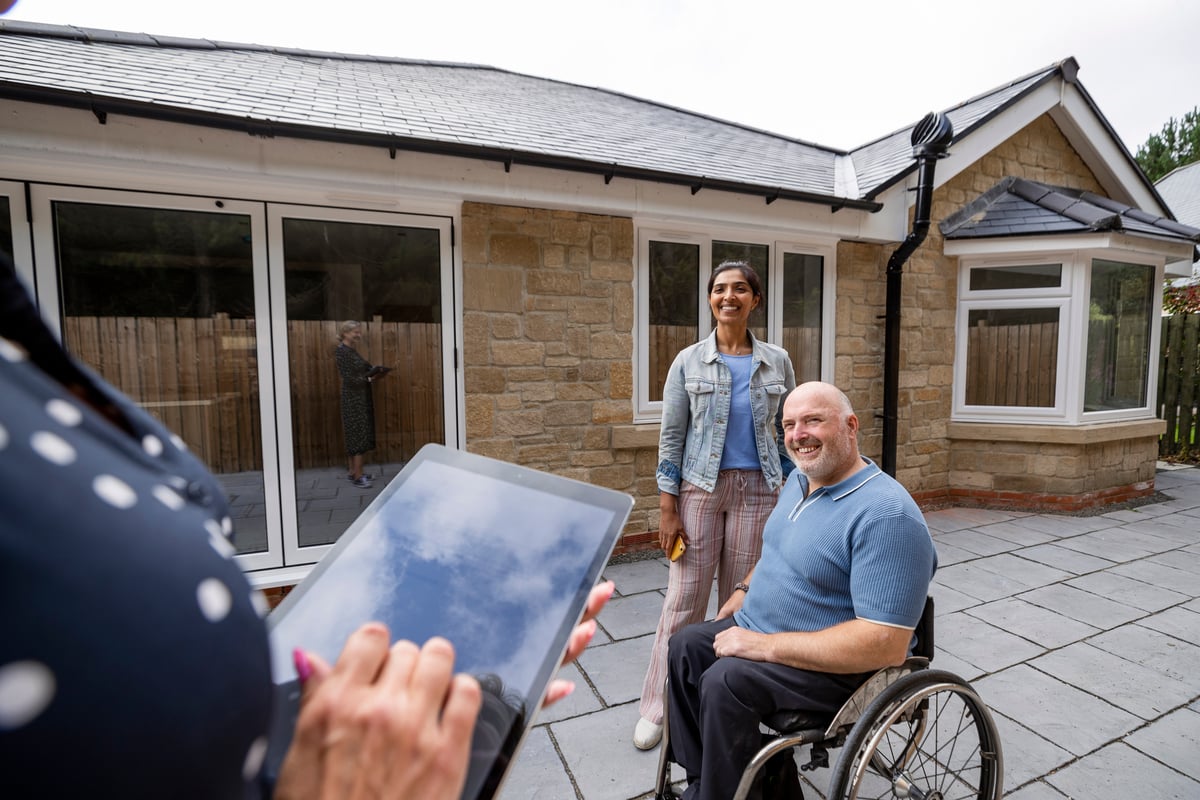It's a new age of meme stocks, and Opendoor Technologies (OPEN 2.33%) is leading the way. The iBuying company has been under intense pressure as mortgage rates haven't budged despite lower interest rates and home sales continue to decline.
Yet, Opendoor stock is flying. It gained 142% in August, and it's up 278% year to date.
Is it just a meme thing? Or can this continue? Let's check it out.

Image source: Getty Images.
Not enough houses for sale
iBuying could be a great business, but this isn't the climate for it, and Opendoor has to make it through to the other side before it can succeed. Several other companies, including real estate technology giant Zillow, gave up their iBuying efforts pretty quickly, but Opendoor is sticking it out.
It's not an easy business to get started, because it's highly capital intensive. iBuying involves buying up homes, making appropriate renovations, and reselling them. To become successful, Opendoor needs a few cycles of high sales to be able to buy homes without relying on too much outside capital.
The problem is that people aren't selling homes today, because they don't want to get a new mortgage at current higher rates. According to the most recent available data from the U.S. Census Bureau, which is for July, new homes sold fell 0.06% from June numbers and 8.2% from last July.
Mortgage rates fell last week after a weak jobs report, but they remained above 6% at 6.29%. That's still too high for most people who have been waiting to buy, keeping the housing market sparse.
Can lower interest rates save the day?
Opendoor has been making intense efforts to stay in operation while it waits for the climate to change, and there's been progress. Revenue increased 34% year over year in the second quarter, and net loss improved from $92 million last year to $29 million this year. Adjusted earnings before interest, taxes, depreciation, and amortization (EBITDA) was positive with $23 million, up from a $5 million loss last year.
However, you can't buy what isn't for sale, and it only bought 1,757 homes in the quarter. That's down 63% from last year and 51% from the first quarter. It ended the quarter with $1.5 billion in inventory, or 4,538 homes, down 32% from the first quarter.

NASDAQ: OPEN
Key Data Points
The company recently piloted a new program in select locations to collaborate with outside agents, who get access to the marketplace for their clients. When ready to sell, they get Opendoor's cash offers. The results have been positive in the piloted regions, with double the number of customers ready for a cash offer than through its regular, direct-to-consumer model, and five times the listing agreement conversion rates, or the number of clients who list with a partner agent.
This a capital-light earnings stream that should add sales and also boost margins. Based on the pilot, Opendoor has quickly expanded the pilot throughout all of its regions, and it's in the process of training agents to partner with.
The Federal Reserve has indicated that it's going to cut interest rates at its meeting next week, and Opendoor is well positioned with its new model to benefit from homeowners moving to sell.
Meme stock supreme
However, even though there's some good stuff happening at Opendoor, it would be a mistake to believe that the increasing stock price is coming from positive news. The stock had a huge rise -- more than 250% in one week -- in the middle of July, well before the second-quarter results were released and without a connection to any company news.
It seems to be the result of activist investors working together with retail investors through social media. The activism has been loud enough to oust CEO Carrie Wheeler, who left abruptly in the middle of August.
There are reasons to believe that Opendoor stock could go higher in September. It's already up another 36% since the beginning of the month. However, it remains incredibly risky, since the rise isn't connected to meaningful progress in the business. I wouldn't count on Opendoor stock offering value right now, and I'd wait to see improved operational results and lower retail and activist investment activity before deciding that this investment is worth your money.







